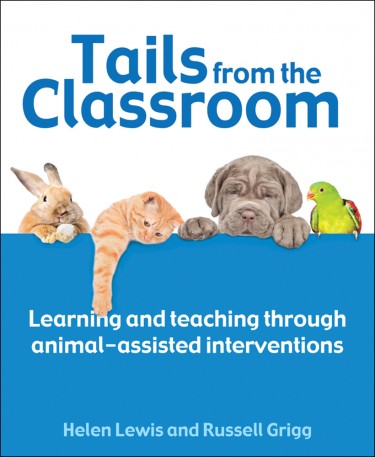Pets as Therapy Facebook Live with Helen Lewis and Russell Grigg


One of the things that most children around the world have in common is their love of animals.
Psychologists suggest that most children love animals for a combination of reasons. They are attracted by their appearance, noise, movement, visibility and unpredictability, but they also see animals as
˜good listeners™ and comforters.
It™s long been proven that animals are good for adults™ wellbeing, both mental and physical. But in the last few years studies have shown the huge benefit that animals can have on children™s development “ from social, behavioural and emotional development, right through to more nuanced skills in language, literacy and communication.
Dr Helen Lewis and Dr Russell Grigg have been studying the benefits of what they call animal-assisted interventions (AAIs) in educational settings for several years. Helen currently leads an educational anthrozoology module at Swansea University: œRepeated interaction with an animal creates a relationship, which can add to a sense of security and belonging. Children who lack confidence in speaking to humans can address this by gaining confidence in talking to animals.
œWe see this benefit help enormously when it comes to things like reading. Animals can put children at ease and contribute towards an environment in which they are more willing to read, make mistakes, talk about how they feel, read aloud, self-correct and grow in confidence.
Russell adds: œSchemes which feature reading-to-dogs, such as Pets As Therapy™s Read2Dogs, have been shown to motivate and engage reluctant readers and we know that motivation is key to reading for enjoyment. Many young people do not enjoy reading, but one study showed that through ˜playful reading™ to dogs, children develop a more relaxed attitude towards books as they benefit from a close, non-critical and informal relationship. As the dog appears to listen and show interest in the child reading, this increases the child™s confidence and time spent on the reading task.
œRecently we've found lots of schools have used animals to help children return to school after lockdowns, while some have involved animals in online lessons during the pandemic, adds Grigg.
One of the premises behind AAI is that stress is a significant variable in learning and that it can be mediated through interactions with animals. The emphasis is very much on fostering students™ self- management skills, such as learning to handle stress and self-motivation, as well as building self-confidence and positive attitudes. Helen and Russell™s new book Tails from the Classroom explores the use of AAIs in educational settings and how they can inspire and support learners™ all-round development. It also offers schools and teachers a guide to implementing an animal-assisted intervention, including important aspects such as getting parents on board and how best to go about integrating animals into school life.
Helen and Russell will be discussing the science behind animals in the classroom in an exciting Facebook Live event with Pets As Therapy™s Matt Robinson at 19:30 on Monday 22nd February 2021 “ you can watch the live event here. During the event we will also hear from teachers from each corner of the UK who™ve successfully introduced dogs and animals in their schools with the help of Pets As Therapy and its volunteers, exploring what their experience has been and how it™s helped the pupils in their care.
Find out more about Tails from the Classroom here.
